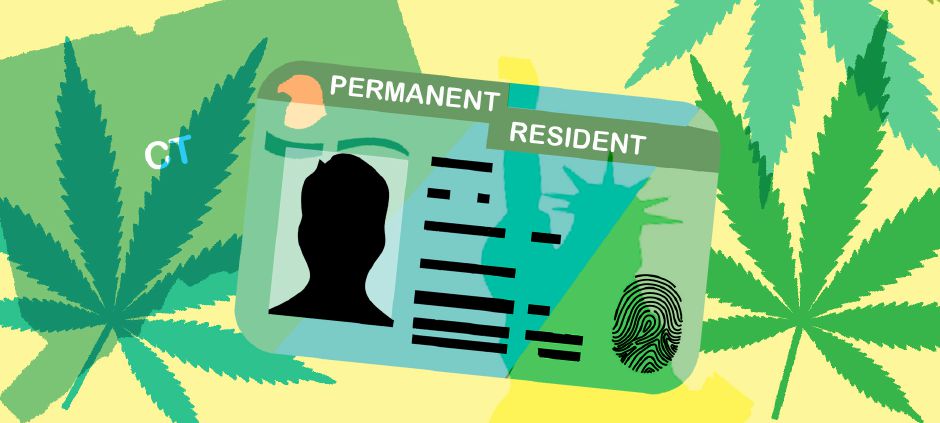MERIDEN – Even though Meriden opened one of Connecticut’s seven adult-use dispensaries earlier this month, cannabis is still a federally controlled substance. As a result, immigration lawyers warn of potential consequences cannabis might have for Connecticut residents applying for permanent residence or citizenship.
“There’s a big disconnect between states that have passed laws permitting the use of marijuana and the U.S. government’s view of marijuana,” said Joseph Marino, executive director and immigration attorney with Immigration Advocacy & Support Center in New London.
The Drug Enforcement Administration lists cannabis as a Schedule I drug. This is a category reserved for drugs with currently no accepted medical use and a high potential for abuse. In addition to cannabis, Schedule I drugs include LSD, heroin and ecstasy.
Starting in July 2021, possession of cannabis among adults age 21 and over was legalized in the state by Senate Bill 120. According to state law, adults can carry less than 1.5 ounces and own less than 5 ounces in their homes or locked in their car trunk. The bill also regulated the sale of cannabis and prohibited the sale of cannabis without a license.
This gray area in the law doesn’t really affect U.S. citizens, said Sr. Mary Ellen Burns, the executive director and an attorney with Apostle Immigration Services. She said even though cannabis is listed as a Schedule I substance, the federal government doesn’t prosecute marijuana use or possession.
However, referencing two titles of the Immigration and Nationality Act, Burns explained that possession or sale of cannabis still has broad implications for immigrants — even without an arrest or conviction. It can affect people seeking admission to the U.S., people seeking permanent residence, permanent residents seeking readmission after leaving, and even establishes grounds to deport those who already have residence permissions.
In practice, she said cannabis use is most likely to become an issue for those looking to become citizens or obtain permanent residency. For cannabis users, she explained that use might be an issue in the mandatory medical exam required for getting a green card.
For non-users, Marino echoed the concern and said being associated with cannabis might have implications for the immigration process.
“If you’re working for a dispensary that’s legally selling marijuana in Connecticut, that could incriminate you on a federal level and certainly affect your immigration process,” he explained. “You are committing a very big federal offense when you’re not committing any offense at all in Connecticut.”
Nevertheless, Burns said Immigration and Citizenship Services has discretion to interpret the act and what it considered drug trafficking.
“It would take [Immigration and Citizenship Services] forever to thoroughly examine any possible thing that any of us might have, but they can change their practices in that use of discretion.”
Last fall, Presiden Biden called on the Secretary of Health and Human Services and the Attorney General to review how marijuana is scheduled under federal law. As Connecticut joins 20 other states and Washington, D.C. that have legalized recreational use for adults, the issue is likely to grow.
“There has actually been a lot of discussion about it,” Marino said. “Because it doesn’t seem quite fair to punish somebody on a federal level for things that are perfectly legal to do on the state level — especially now it’s becoming more of a bigger and bigger issue as more and more states get on the bandwagon of permitting marijuana use.”



